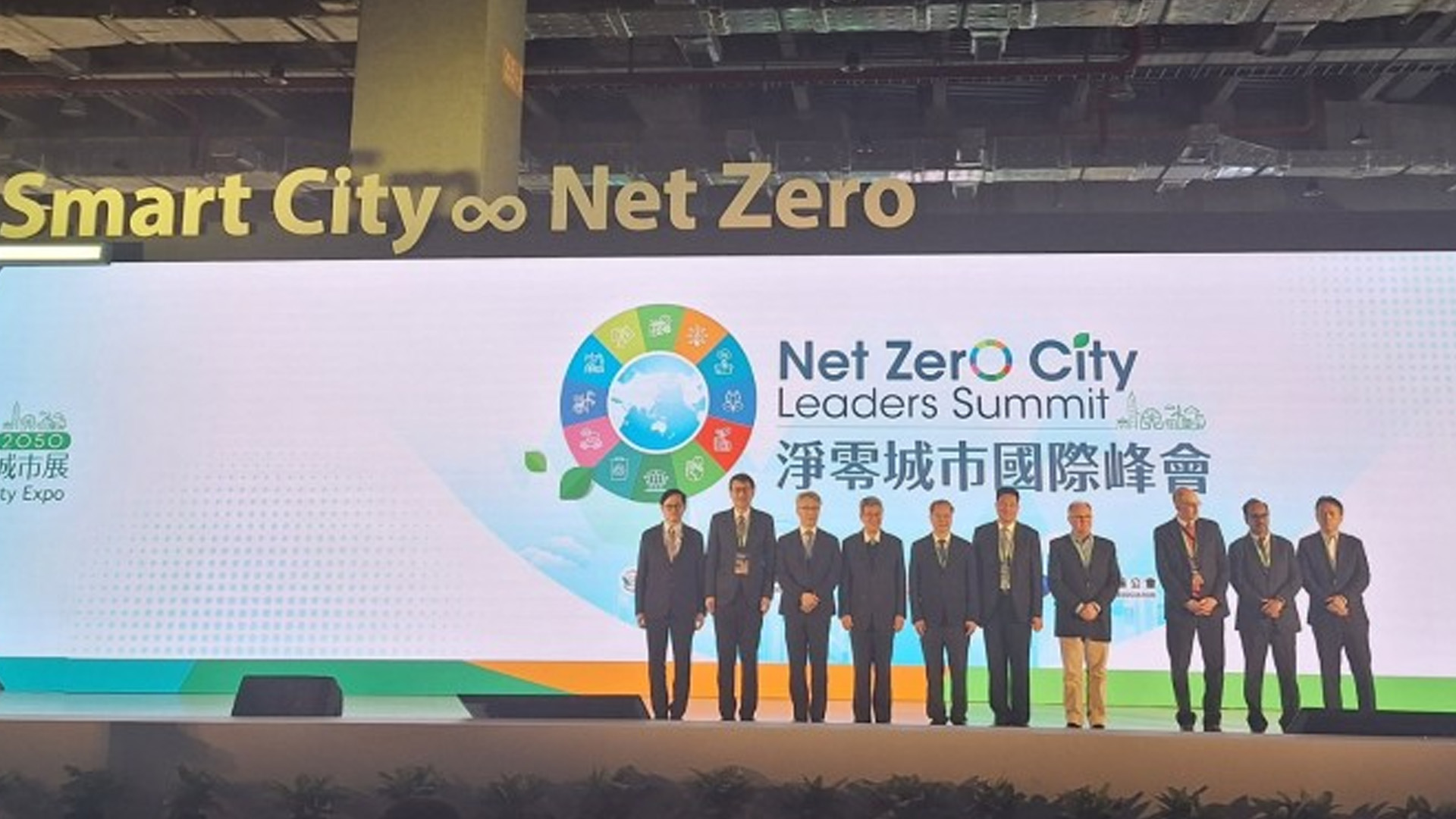Taiwan is encouraging cities worldwide to be proactive in promoting renewable energy investments to address the impact of climate change.
This comes as the island’s government implements policies to reduce greenhouse gas emissions and transition towards environmentally sustainable energy sources.
“We are promoting a second wave of energy transitions. We need to significantly reduce greenhouse gas emissions,” Taiwanese Premier Chen Chien-jen said in his address during the Net Zero City Leaders Summit, as part of the 2024 Smart City Summit and Expo at the Taipei Nangang Exhibition Center Hall 2 on Tuesday.
Chen further stated that the renewable energy sector continues to show significant growth amid international efforts to pursue net zero emissions in 2050.
Net zero is the state of balance between producing and removing greenhouse gases from the atmosphere.
“Under the leadership of President Tsai Ing-wen, Taiwan is implementing initiatives towards net zero in 2050. We will continue to work with other cities across the world to achieve net zero goals,” according to the high-ranking Taiwanese official.
The Taiwan government’s blueprint to attain net zero emission in 2050 aims to increase renewable energy sources, such as solar and wind power, promote green industries and low-carbon technologies, and ensure a just transition for workers and communities impacted by the shift to newer sources of energy.
The plan, titled “Taiwan’s Pathway to Net-Zero Emissions in 2050,” which was published in 2022, will particularly focus on research and development on green technologies and passing legislation that will strengthen carbon reduction goals.
National Development Council Minister Kung Ming-hsin, meanwhile, is urging the public to change lifestyles to further reduce carbon emissions worldwide.
Among these lifestyle changes being pushed by the Taiwan government to its citizens are promoting public transportation, cycling, walking, and carpooling to reduce dependence on private automobiles; offering incentives for energy-efficient appliances in households; and best practices on waste management, such as composting and promoting recyclable products like shopping bags to encourage responsible consumption.
“If we can change people’s lifestyles, we can reduce carbon emissions by 40 to 80 percent. Cities need to take a leading role on this. We want the world to go toward zero emissions in great strides,” he said.
Kung said the Net Zero City Leaders Summit and Expo provides a platform for government departments to showcase their net-zero initiatives while research institutions and businesses will exhibit corresponding net-zero emission solutions. He expressed hope that more enterprises would join the net-zero efforts, becoming new drivers for economic growth.
Meanwhile, Dr. James Liao, president of the Academic Sinica of Taiwan’s National Academy of Sciences said they are pushing for a science and technology approach towards net-zero carbon emissions in the island.
He said five key technologies can be used to achieve net zero – methane pyrolysis to power, geothermal energy, ocean current energy, high-efficiency solar energy, and bioenergy and biocarbon storage.
Methane pyrolysis is the process where thermal energy is applied to methane to break the chemical bond between carbon and hydrogen, generating hydrogen gas and a solid carbon product with no carbon dioxide emissions.
Call to action
At the joint global press conference on the sidelines of the SCSE, resource persons touted the event as an effective way to educate more stakeholders on the importance of smart city and net zero initiatives.
“We are very excited to see new participants, as well as good ideas and innovations, artificial intelligence, smart solutions. The target is to enhance the resilience of communities and the development of these initiatives,” Taiwan Smart City Solutions Alliance chairperson Jason Chen said.
Meanwhile, Kaohsiung City Deputy Mayor Charles Lin said the event showcases the long-term benefits smart city and net zero initiatives for citizens.
“We want to use this platform as a way to reach the international community. We can be the platform to move the industry across borders,” he said, adding that there is a need to “run to zero,” which means an urgent need to implement net zero measures.
Asked on how smart city initiatives can help address traffic congestion in the Philippines, Lin said this could be done by continuously educating Filipinos on these measures.
“Whenever I visit Metro Manila in the Philippines, it is gaining progress every time. We have spoken with administrators of local government units and they said they need more traffic control because there is heavy traffic. We have to educate the people on technology. They still need help on the process of technology implementation. I think Taiwan can help on this,” he added.
“We remind people that we cannot achieve our net zero goals unless we do something. Truth is a powerful weapon. We have to use it more.”
Kaohsiung City is hosting the second leg of the SCSE from Thursday to Saturday.
So far, the southern Taiwanese city has implemented smart city initiatives in disaster response, particularly firefighting and drug abuse prevention.
The city’s Big Data & AI Technology Counseling – Intelligent Drug Prevention System is Taiwan’s pioneering program that leverages artificial intelligence (AI) technology to aid individuals in overcoming drug addiction.
The program is a recipient of this year’s Innovative Application Award, which honors local governments and enterprises for their stellar innovations. (PNA)








